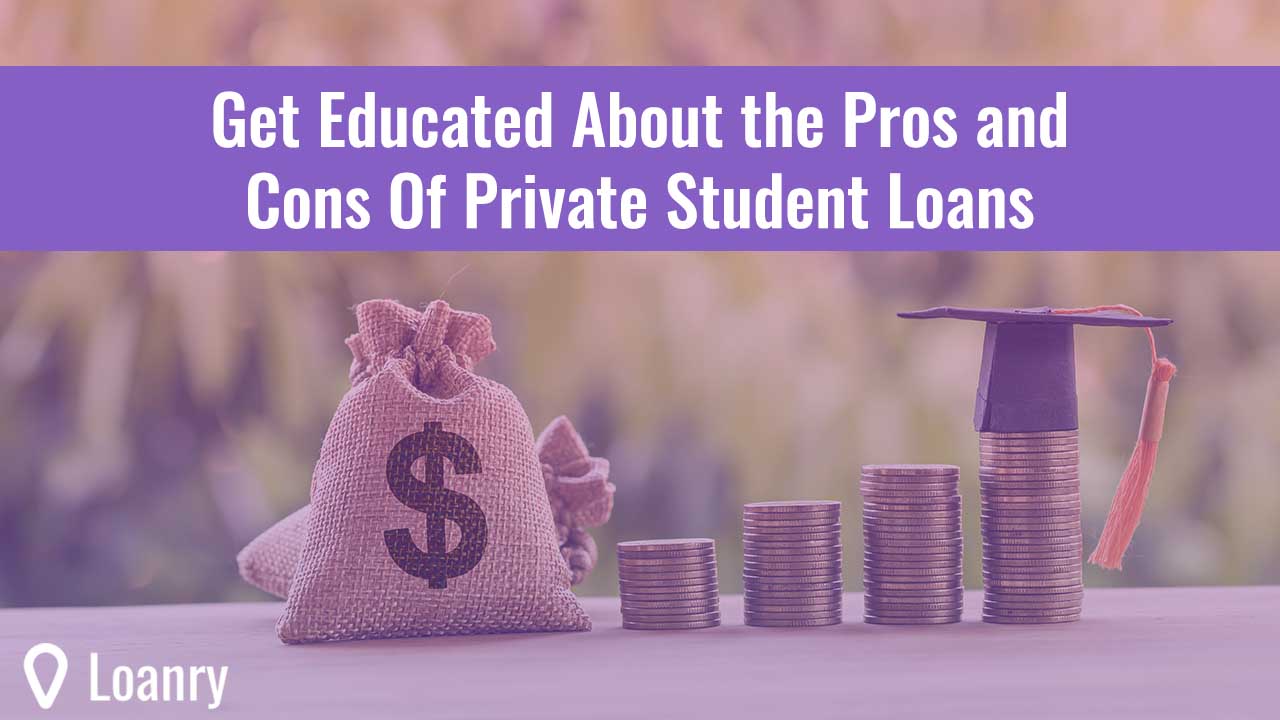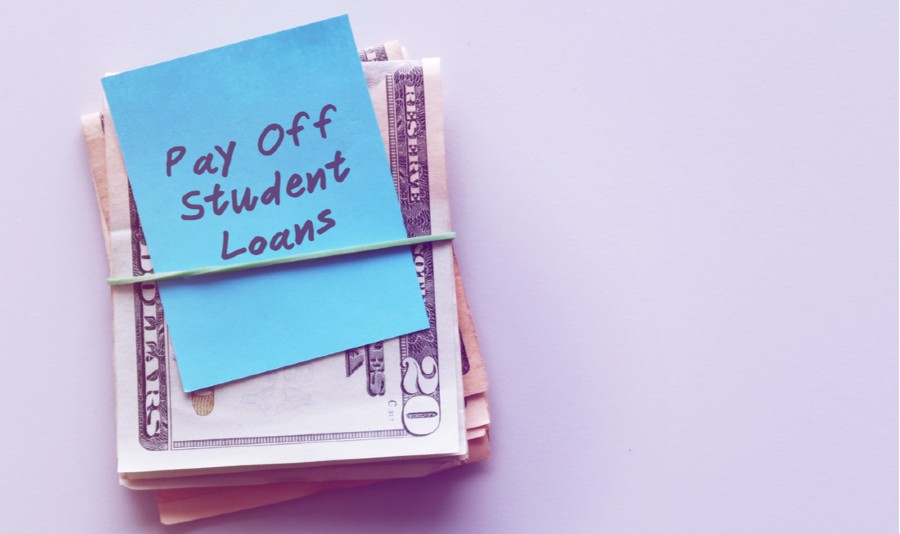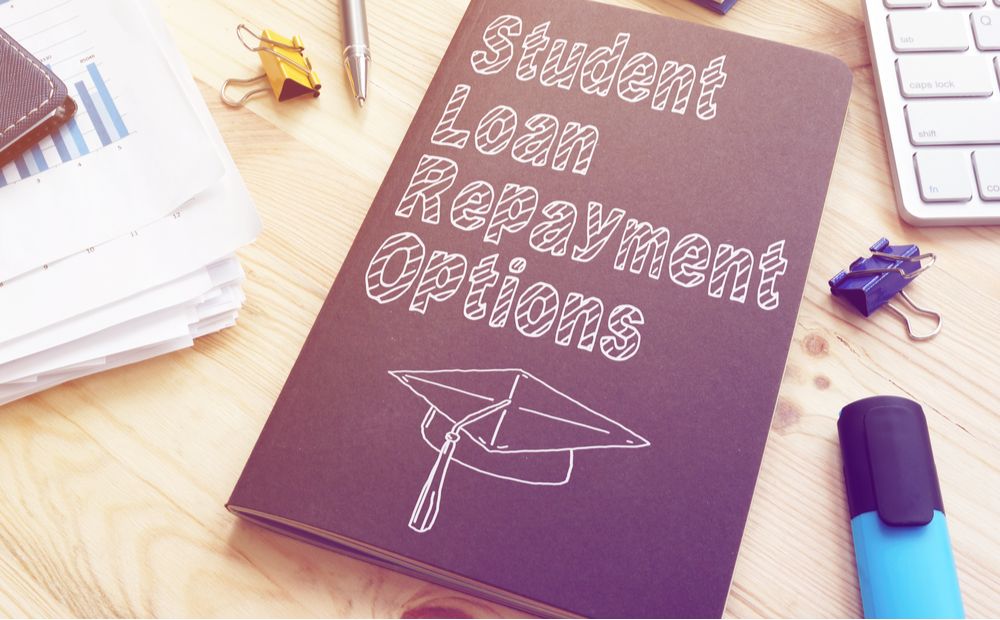
Private student loans have become a very important part of financing education in most countries globally. Most parents face the choice to take out a private student loan or save up money to cover school expenses for their child. These loans can be difficult to pay back. Especially if you go back to college later in life and need more student loan money. Private student loans can be a blessing and a curse. That is why you need to get educated about the pros and cons of private student loans.
Pros Of Private Student Loans
Let’s look at some arguments in favor of private student loans.
✓No Income Restrictions
Loans from private lenders don’t require proof that students will be able to repay them after graduation. In particular, they are available even if a student’s parents earn too much money to qualify for government student loans or you otherwise don’t qualify for financial aid. For instance, graduate students might not receive any funding through an employer. And may need additional funds beyond what is covered by loans, scholarships, and fellowships.
Most large companies’ educational benefits that can partially cover tuition costs also don’t consider the student’s parent income, even if that amount is higher than normally considered.
✓Eligible for Covers Extra Costs
Some private lenders offer student loans specifically to pay for expenses beyond tuition and room and board, such as study-abroad programs or laptop computers. Government loan options are more limited. For example, government direct subsidized loans can only be used to finance tuition, fees, supplies, and equipment required by the school. However, larger amounts of money are available with private loans to pay for educational expenses above your college charges you intuition for each semester.
It is important to understand every term of your loan before you accept it. To know whether interest starts accruing right away or if there is a grace period after you graduate.
✓Parent Loans May be More Affordable
Parents sometimes borrow the difference through government student loans when students don’t qualify for enough funding. These loans have slightly different terms than student loans and can be more expensive in some cases. Further, interest rates on these loans don’t vary, so it might pay off to look at what terms you can get from private lenders and compare them with government student loan options before borrowing any money.
✓No Minimum Credit Score is Required
Several private education lenders only require applicants to pass a soft credit check that doesn’t appear on their credit report when applying for a loan. That means someone who has filed for bankruptcy within the last ten years or struggled to repay other loans may still be eligible for a private loan.
✓ You can Use the Money any Way You Want
Although student loans are typically used only to pay tuition, fees, and textbooks, some private lenders allow borrowers to use them however they wish. That might include funding living expenses while in school, funding study abroad programs, or buying laptops. While some government education loans allow students to apply for additional funds that will help cover additional costs beyond tuition, the process is often more complicated than applying for unsubsidized or government student loans.
✓ No Income-based Repayment Plans are Available
Most governments offer several options for repaying your state direct subsidized and unsubsidized loans based on your income if you have a partial financial hardship. These options include:
- The Pay As You Earn Repayment Plan,
- Income-Based Repayment, and
- Income-Contingent Repayment plans
Although they’re not available for private student loans, there are often other repayment options that may better suit your needs. For example, many lenders offer extended repayment terms for larger loan amounts or reduced interest rates in exchange for a co-signer who has a good credit history.
✓ You can Defer Payments Until After Graduation
Government direct subsidized and unsubsidized loans generally don’t allow students to postpone the payment of principal and interest until after they graduate from college, but most private education lenders do. That is particularly helpful for those who don’t have a job lined up after graduation or plan to continue their education with graduate school. You can use the additional time to prepare yourself financially for making payments.

✓There are Unique Repayment Options
Most government student loans offer 10, 15, and 20-year repayment terms, but private student loans usually have shorter repayment periods of five to seven years depending on your state. While it is important to be aware that you may ultimately pay more in interest by choosing a shorter loan term, many students find repayment options appealing since they help keep monthly payments down.
Also, if you plan on pursuing public service work upon graduation, refinancing your private student loans into one or more government direct consolidation loans might save you even more money over the life of your loan. That is because direct government loans have a fixed interest rate usually lower than most private student loan rates.
✓ You May be Able to Get More Favorable Terms With a Co-signer
When parents apply for government student loans, they’re required to have a qualified co-signer who agrees to repay the loan if the parents don’t pay it back. Since there is no such requirement when applying for private student loans, some lenders allow students with credit profiles that aren’t perfect to qualify for better loan terms if an immediate family member or trusted friend acts as a co-signer.
Cosigning means you and your loved one will both be responsible for repaying the funds in case of late payments, defaulting on the loan, or not making payments according to the contract terms. That may also mean that your co-signer could have a higher interest rate than you, saving you money in the long run.
✓Competitive Interest Rate
The interest rate on private student loans ranges between 4% to 20%. In some cases, the interest rates may be lower than those offered by government-subsidized loans and other types of financial aid available. That is beneficial to those who have already researched average student loan interest rates for different types of loans. And know that the interest rates they have to pay for private loans are lower.
Cons Of Private Student Loans
As always, there’s another side. Let’s look at some cons of private student loans and weigh them against the pros.
✗ Late or Non-payments can be Reported to Credit Bureaus
While lenders cannot report late payments associated with government student loans to credit bureaus, that’s not always the case with private student loans. That can be particularly frustrating for students in school or post-graduation when they don’t have a job and therefore aren’t paying their bills on time. When your lender reports your pas due to payments to a credit bureau, it could lower your credit score and make it more difficult to secure loans in the future, such as a car loan or mortgage.
✗ Not all Lenders Offer Flexible Repayment Options
Government student loans provide several options for repaying education debt based on your income, family size, and state of residence, but not all private student loan providers allow students to do this. When you apply for a loan from a private lender, your repayment terms will be outlined by the terms and conditions within your promissory note or contract. If there’s no flexibility with making payments when you could use help financially, it could get expensive fast, especially when you do not qualify for an income-based repayment plan because of either your job status or the amount of debt you’ve accrued.

✗ You Might be Forced to Repay the Full Interest Charged
For government student loans, interest accrues while a student is in school and during grace periods and deferment or forbearance periods. However, while there are no daily interest charges on subsidized or unsubsidized direct government student loans for undergraduate students when they are enrolled at least half-time, that doesn’t apply to private student loans. If you don’t pay back your private education debt according to the terms of your promissory note, the late fees and added accrued interest could make paying off your debt much more difficult than originally envisioned when you first took out your private education loan.
is the percent of students who use the private student loans from bank or credit union.
✗ You Could Lose Eligibility for Future Financial Aid
Government student loans aren’t included when determining how much money a college will expect families to pay each year during the financial aid process. However, if your child has accumulated a lot of private student debt, it could negatively affect your eligibility for need-based financial aid.
Governments only look at the amount parents are expected to contribute toward their child’s education when making its calculation. While some schools consider both parent and student income and assets when determining financial aid packages.
✗ You Might be Tempted to Take out More Money than You Need
Taking out the full amount of loans available to students can cause unnecessary stress in repayment if students don’t have a plan for how they intend to pay off their debt after graduation or soon after that. Students who graduate from college with an abundance of private student loan debt may even struggle to make loans that won’t break the bank each month.
It is recommended to take out the money you’ll need. Because your future financial situation could change once you have a job and get settled after graduating from college.
✗ You Might Not Find out About All Your Repayment Options Until You Start Paying Back Your Debt
You might be overwhelmed when making monthly payments on your student loans because there are so many repayment plans students can choose from while others don’t even apply to their situation.
Since many private lenders require borrowers to consolidate government and private education loans before entering into an income-driven repayment plan or qualifying for other repayment assistance, they might not even know what program would be best for them or if that particular type of plan is available.
✗ Private Loans aren’t Eligible for Most Government Repayment and Loan Forgiveness Programs
Getting enrolled in a government direct consolidation loan program such as income-driven repayment plans or public service loan forgiveness could be difficult if you don’t have any government student loans. You wouldn’t qualify for them unless you had at least one government education loan. However, not all private lenders participate in these programs that can make repaying your private student loans much more manageable. Ensure you ask your lender if they offer any assistance with repayment based on a borrower’s income.
FAQ About Private Student Loans
The first historical example of a loan for higher education dates back to Ancient Greece. When Plato was an educator, he funded his students (who were also his lovers) by lending money to young men with the promise that they would pay it back with interest after getting employed. Banks granted the first modern student loans in the UK in the 1920s. These loans were aimed at students who did not have collateral or whose collateral was deemed insufficient to cover the loan amount.
While you may need to have good credit for certain types of loans, you can qualify for a private student loan with poor or no credit history. Some lenders will even allow people with bankruptcy or other major marks on their records to apply for a loan.
Many lenders allow you to apply for a new private student loan when your child is accepted into college or university. If your child is already attending school, some lenders may require that the loan’s first payment be made after they graduate.
A co-signer is someone who guarantees that the lender will pay a private student loan. A co-signer can have their credit checked before being approved as a loan’s guarantor. The guarantor’s income and savings will determine how large a loan they can afford to take out on behalf of your child. The guarantor inherits all rights to collect money from your child if they fail to make loan repayments.
A co-signer might be needed when applying for a provincial government-sponsored student loan, affecting your child’s future ability to receive need-based financial aid. The amount of aid that your child receives is based on their expected contribution to the college, which considers income and savings from both parents and the value of any assets available to pay for education costs during college years. In contrast, money borrowed from a private lender is not considered when determining how much financial aid your child might be eligible for. Loans that the government does not sponsor typically do not affect eligibility for provincial student grants or bursaries.
Some lenders charge an origination fee to offset administrative costs associated with taking out a loan. The fee amount will vary depending on the size of the loan and other factors. But it can range anywhere between 1% and 3% of the total value borrowed. Origination fees are usually added to the amount you borrow to determine how much money you must repay over time.
While most loans require approval from a lending committee before disbursement, many private lenders will issue a decision on your application within one day. The lender will deposit the money into your account early as the next business day if approved.
Prepayment fees allow lenders to charge borrowers who repay their loans before the designated due date. Some students choose to make additional payments toward their loans when they receive financial aid or any other source of income that can be used towards repaying student debt. While there may not be any prepayment fees assessed when applying for a loan, some lenders require borrowers to pay such fees before accessing funds from their accounts if they repay portions of their loan too soon after it is issued.
Using the Goalry Application
Loanry helps you find a reputable lender and offers education on how to make the best choice for yourself. The entire Goalry platform with all its finance stores offers the tools to assist you in monitoring your credit, cash flow, budgeting and so much more!
In Conclusion
While many people negatively view student loans, whether private or government-backed, there are significant pros to taking out a loan. A student loan is a way to fund education that might not otherwise be possible. Also, even though it can be difficult at times, paying back these loans teaches an important lesson about living within your means and the importance of planning for your financial future.

William Vinson has been a professional writer for more than 35 years. He is also a seasoned financial professional and raised significant capital for the startup of over 30 companies. He has expertise in real estate, insurance, financial planning, and investment management. He wrote thousands of articles for publication on major websites. All of his earnings from writing are used to support the charitable efforts of the Willivision Foundation that helps the elderly and does animal rescue.
